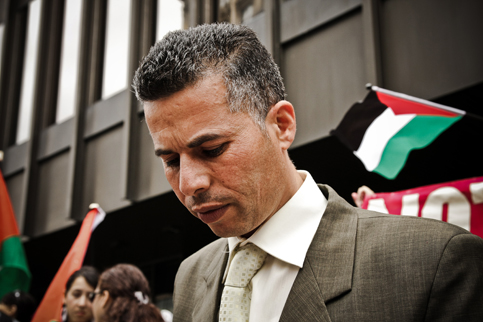Tag: Bil’in
-
Israel signals tougher line on West Bank protests
Isabel Kershner | The New York Times 28 January 2010 Apparently concerned that the protests could spread, the Israeli Army and security forces have recently begun clamping down, arresting scores of local organizers and activists here and conducting nighttime raids on the homes of others. Muhammad Amira, a schoolteacher and a member of Nilin’s popular…
-

Mohammed Khatib, coordinator of West Bank Coordination Committee arrested
Popular Struggle Coordination Committee 28 January 2010 At a quarter to two AM tonight, Mohammed Khatib, his wife Lamia and their four young children were woken up by Israeli soldiers storming their home, which was surrounded by a large military force. Once inside the house, the soldiers arrested Khatib, conducted a quick search and left…
-
Protester Injured in Bil’in During Weekly Non-Violent Demonstration
Friends of Freedom and Justice 22 January 2010 Today 30 to 40 Palestinian, Israeli, and other international protesters marched through the West Bank village of Bil’in to the Israeli built separation barrier, ruled illegal by the International Court of Justice. Per usual, the demonstration was dispersed by tear gas projectiles and concussion grenades shortly after…
